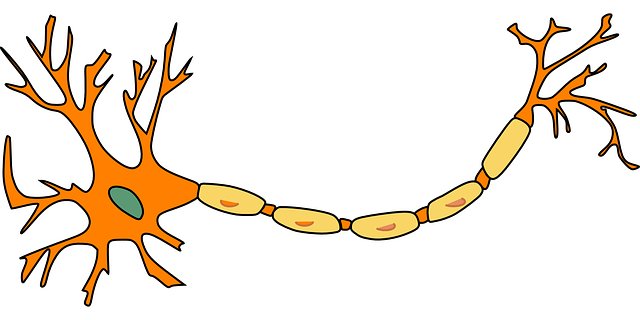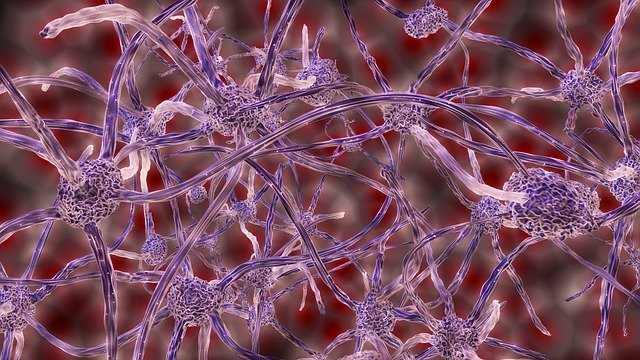Good lifestyle choices, coupled with a well-balanced diet, can assist in reducing many nerve inflammation conditions, e.g., optic neuropathy, carpal tunnel syndrome, optic neuritis, tinnitus, and diabetic neuropathy. Many diseases affecting the human race are, in many cases, caused or made worse by individuals making poor lifestyle decisions, especially those touching on hygiene and nutrition.
What is nerve inflammation?
Inflamed nerves are also known as neuritis. Inflammation occurs when the body tissues attempt to react to a disease or injury. By becoming inflamed, the tissues will be attempting to increase the supply of blood to assist with the healing process.
For inflamed nerves, inflammation of a single nerve leads to the pinching of blood to the surrounding nerves. This leads to a response that is known as a cascading negative response, which, if not addressed promptly, may cause irreparable damage to the nerves.
When a nerve dies, it cannot be replaced, as often happens with muscles. Before the nerve dies, a nerve will normally send many signals during its pre-death phase. The human brain tends to interpret the nerve firings as flashing or blinking images, pain, buzzing sounds, tingling, or pressure.
As the condition continues to progress, the nerve that has been starved the following is likely to happen:
- Loss of feeling in the region that is affected
- Deafness
- Visual field loss
- Loss of motor control
If this inflammation is addressed in time, it may be possible to restore function to the adjacent nerves. But the nerves that have already died cannot be replaced.
Causes
An inflamed nerve can normally be caused by more than one reason. Studies have shown that every one out of every four hundred people will, at one point in their lives, develop nerve inflammation.
Nerve inflammation will, in many cases, have a good prognosis, and when noted early, treatment can yield promising results. However, when dealing with severe cases, there is always the likelihood that one could suffer permanent damage, with its symptoms being expected to last for the remainder of one’s life.
Additionally, if the inflammation is not treated, there is a likelihood that one could become paralyzed in that particular region. This paralysis can, in some cases, last for a lifetime. The most widespread causes of inflamed nerves include:
- Underlying systemic conditions: you could get an inflamed nerve if you have underlying conditions such as vitamin deficiency, diabetes, or metabolic acidosis.
- Mechanical trauma: normally occurs when you have an injury. It can also be caused by sudden pressure leading to inflammation and nerve damage.
- Chemical trauma: this is associated with exposure to harmful toxins contained in heavy metals, e.g., lead and mercury. It can also be caused by exposure to toxins in organophosphate, alcohol, and chemical poisoning that may be found in drugs.
- Infection: having a chemical infection, e.g., tetanus, shingles, polio, diphtheria, and leprosy, can also lead to a case of inflamed nerves.
- Vascular tissues: it comes secondary to hemorrhage or blockage in your nerves
When you get inflamed nerves, you could end up with numerous medical conditions. Some of them are:
- Vestibular neuritis
- Cranial neuritis
- Brachial neuritis
- Optical neuritis
The condition can be temporary, or it could end up being a permanent disorder. Also, it may only affect a single nerve, or end up affecting bundles of nerves in your body. When this happens, this is known as polyneuritis.
Symptoms of inflamed nerves
The nervous system is involved with everything happening in your body. It is involved in your breathing, muscle movement, and sensing whether it is hot or cold. The human body has three main types of nerves:
- Automatic Nerves: these are the nerves that control partial or involuntary activities of the body, e.g., temperature regulation, controlling the heart rate, digestion, and blood pressure.
- Motor Nerves: they are the nerves responsible for controlling the body’s actions and movements. They do this by passing information from the spinal cord and the brain to the various bodily muscles.
- Sensory Nerves: sensory nerves are in charge of relaying information from the muscles at the back of the spinal cord, the skin, and the brain. Once relayed, the information gets processed and communicates to you the kind of sensation that you should be experiencing, e.g., pain.
Given the important role served by nerves in your body, inflamed nerves, nerve damage, and pain have the potential to seriously affect your daily life. Some of the symptoms you need to be on the lookout for include:
For optic

Optic neuritis is caused by inflamed nerves which damage the optic nerve. These are the nerves responsible for relaying information from the eyes to the brain. Common symptoms include temporary vision loss and pain.
The condition is commonly known to affect a single eye. The symptoms that you need to be on the lookout for include:
- Eye pain. The pain may worsen when you attempt to move your eyes. You may also experience a dull ache in the region behind the eye that has been affected.
- Flashing lights. Some people affected by this condition have reported seeing flickering lights when they move their eyes.
- Loss of vision in a single eye. Some experience temporary vision reduction. It is possible to note a loss of vision that will normally advance over several days but will start to improve as time goes by.
- Visual field loss. Loss of side vision may occur in different varying patterns.
For sciatic nerve in back
Sciatic is a pain that affects your sciatic nerve, which is located at your back and extends from your lower back along with the rear parts of your legs. Some of its most common symptoms include:
- A shooting pain making it impossible to stand up
- Hip pain
- Constant pain on one part of your backside
- Tingling or burning down one leg
- Numbness, weakness or experiencing difficulty moving your foot or leg
- Lower back pain
According to WebMD, the condition only affects one part of your body. In many cases, the pain will normally extend from your lower back, and travel all through to your thigh, before proceeding down the leg. It can, at times, proceed to your toes or feet depending on the part of your nerve that has been affected.
In tooth
The soft area of your tooth, which contains connective tissue, blood vessels, and the nerve is known as the dental pulp. The nerve in the tooth is found in its lower part, also known as the legs or the root. From the root, some canals travel to the tooth pulp chamber.
The nerve in your tooth is there to serve sensory duties. Its purpose is to provide cold or heat sensations. This means that its presence or absence will in no way affect how the tooth performs its day-to-day functions.
If you get inflamed nerves in your tooth, the root canal may need to be removed. Some of the symptoms to look out for will include:
- Severe toothache when you apply pressure or use the affected tooth to chew food
- Tenderness and swelling of surrounding gums
- Recurring or persistent pimples on your gums
- Teeth discoloration
- Prolonged sensitivity when you apply heat or cold
In some cases, you may not notice any symptoms at all.
In foot (leg) and arm
According to Mayo Clinic, peripheral neuropathy occurs when your peripheral nerves become damaged, which may lead to pain, numbness, and weakness in your feet and hands. The condition has also been known to affect other body parts.
The peripheral nervous system is in charge of transmitting information from the spinal cord and the brain to other parts of the body. The condition could result from exposure to toxins, traumatic injuries, inherited causes, metabolic problems, and infections. Diabetes mellitus is one of its leading causes.
Its symptoms include:
- Muscle weakness or paralysis
- Burning pain
- Sensitivity to touch
- Digestive problems
- Heat intolerance
Peripheral neuropathy is mainly caused by different factors. A combination of these factors causes your nerves to become damaged. Some of its causes include:
- Inherited disorders
- Alcoholism
- Exposure to toxins
- Infections
- Medications
- Diabetes
Is nerve damage repair possible?
When a nerve in your body is damaged or gets cut, it will normally attempt to try and heal itself. The axons (nerve fibers) will normally shrink back, relax for around one month and then start growing again. If this does not happen naturally, you can always opt to undergo surgery. Available options for nerve repair damage include:
- Nerve grafting
With nerve grafting, a length of your nerve will be taken from another part of your body and then used as a graft. A microscope is needed for this repair to be carried out. You can expect to get a scar after the nerve repair, and with the area where the nerve was removed from experiencing some numbness.
Some of the common donor samples for grafting include the nerves in your leg and forearm.
- Direct nerve repair
Here, the physician will use a magnifying glass or microscope to repair the damaged nerve. The repair is done using sutures that are smaller than a human hair.
This kind of nerve repair has been seen to be very successful. But the question of whether it can be used to repair the current damage on your nerves will depend on the kind of injury that has been sustained.
Home relief options
The top home remedies for inflamed nerves include:
1. Cold or hot compresses
Using a hot or cold compress can assist in relieving the pain caused by inflamed nerves. The heat from the compress relaxes all the tensed up muscles that could be compressing the nerves.
Cold compress deals with the swelling while numbing any pain you may be experiencing. It is recommended that you alternate the hot and cold compress.
What to do at home
- Place a compress on the affected region for about twenty minutes
- Alternate the compress
- Repeat every few hours until you obtain some relief
- You should not use a cold compress if you have a problem with your circulatory system
2. Turmeric
This is another highly effective home remedy due to its potent anti-inflammatory properties. Turmeric contains curcumin, which assists in reducing nerve pain and doing away with inflammation.
What to do at home
- Take a single teaspoon of turmeric and add it to a cup of milk
- Take this solution and place it in a pan
- Boil it for a few minutes
- You can add honey to sweeten it
- Take it two times each day
Treatment
The treatment recommended for inflamed nerves will depend on what is causing the inflammation, and its levels of severity. Common treatment methods include:
Medications
- Mild pain—NSAIDs, including codeine and aspirin. These are normally prescribed to help you manage the pain
- Acute pain—corticosteroids could be recommended when you have a severe inflammation
- Chronic neuropathic pain—lidocaine, capsaicin, and duloxetine may be considered depending on how severe your inflammation is at the moment.
Physical therapy
Physical body manipulation may be recommended. It assists in improving your range of motion as well as your muscle tones. Different modalities may be employed depending on how severe the condition is at the moment.
References:
- Pramod Kerkar. Causes, Symptoms of Inflamed Nerve & its Treatment, Prognosis: https://www.epainassist.com/nerves
- Health Blurbs Personnel. Nerve Inflammation: http://www.healthblurbs.com/peripheral-neuropathy-causes-numbness-tingling-burning-sensations-muscle-weakness-symptoms/
- Rebecca Ayers. Nerve Surgery and Nerve Repair: http://www.rebeccaayers.co.nz/


